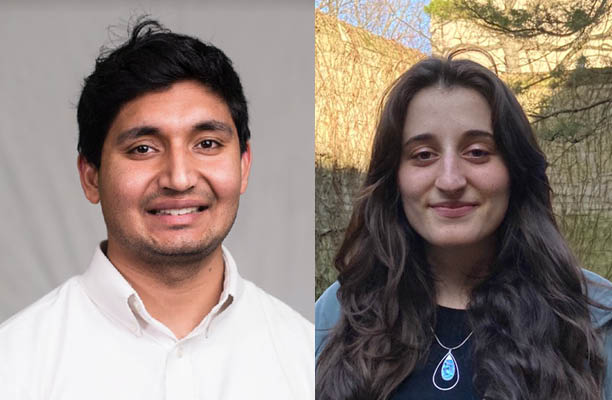DDNJ Podcast: Reimagining Disability: A Call To Action
 “You can write about problems. You can talk about these issues,” said Paritosh Joshi, an emerging researcher at Teachers College, Columbia University and a guest in the latest DDNJ Author Insights Podcast. “[But] how do you implement them? … That's what we're really hoping to tackle, because you have to take an activist approach. … and really center the experiences of people, not who are making profit and the people who are in positions of power, but people who can who really could use the resources.”
“You can write about problems. You can talk about these issues,” said Paritosh Joshi, an emerging researcher at Teachers College, Columbia University and a guest in the latest DDNJ Author Insights Podcast. “[But] how do you implement them? … That's what we're really hoping to tackle, because you have to take an activist approach. … and really center the experiences of people, not who are making profit and the people who are in positions of power, but people who can who really could use the resources.”
Joshi and Julia Pappageorge, an interdisciplinary educator and researcher based in Chicago at Northwestern University, spoke on the research behind “Reimagining Disability, a Call to Action." The article appeared in Volume 3, Issue 2 of the Developmental Disabilities Network Journal.
Both speakers challenged institutions to stop thinking of disability as a thing to be fixed. Ultimately, they said, the medical model can imply that disability is the fault of the person who cannot be “cured.”
“What are the psychological implications for a person with a disability when they go in and it [their condition] can't be changed or addressed by a medication or by an intervention?” said Matthew Wappett, IDRPP’s executive director and the podcast host. “I think a great example would be down syndrome, right? No matter what a medical doctor does, they're not going to get rid of that extra chromosome. … What are the psychological implications for your interface with that medical system, recognizing, and even for doctors to tell you, ‘Oh, you can't be fixed?’”
“I think that what you described is essentially people saying, 'Well, it's your fault you have down syndrome,'” Joshi replied. “And what it does, is it could lead to this sense of restriction that while there's only so much I can do, there's only so much I can really partake in because I'm never going to be as good as the average person.”
Instead, the researchers argued for a more systems-based approach. “It's really important to embrace that social model because it shifts the focus from blaming individuals for their impairments to what's actually the issue: there are structures and attitudes that are very limiting,” said Pappageorge. “When there is an explicit acknowledgment of the socially constructed nature of the disability, then we can have more competent, more holistic, patient-centered care. …
“A second important action step is educating ourselves about the diversity and complexity of disability experiences. We've talked throughout this conversation about how our different intersectional identities marginalize people in different ways. And I think that's important to consider when we're becoming more aware of the pretty complex ways that ableism interacts with other things: racism, class privilege, things like that.”
Joshi argued that the “objective” nature of research is not as unbiased as professionals claim it is. “The more we understand about society and ourselves and just the psychology of being, the more we recognize that there is no such thing as objectivity out there. … Everything is viewed through our personal lenses and through the systems that we live within.”
What’s more, he said, the profit motive in medicine can lead to practices that enrich drug companies and providers. “[It] doesn't mean it actually centers the needs of people who actually have those experiences. … It's something that a lot of the field of health equity needs to embrace: whether they run away from it or whether they choose to actually dive deeper.”
Listen to this and other episodes of the DDNJ Author Insights Podcast on Apple Podcast, Spotify and the DDNJ Author Insights Podcast Page.

